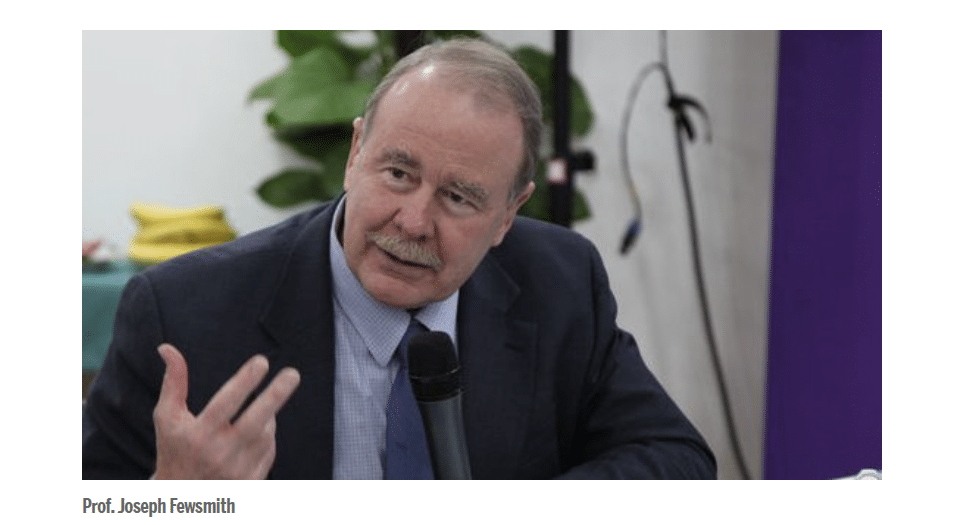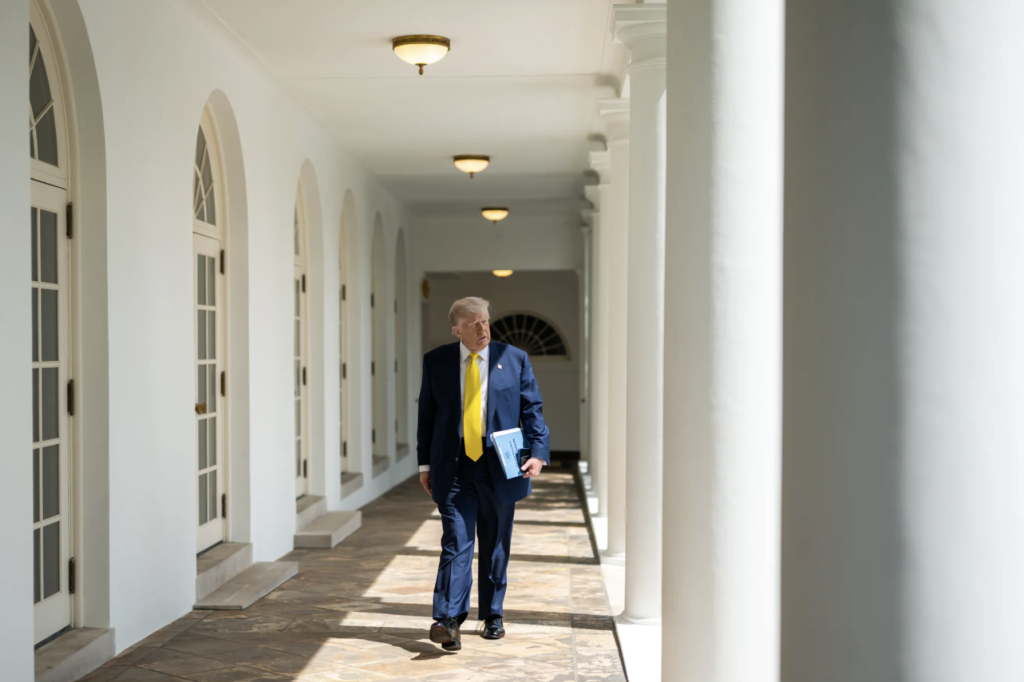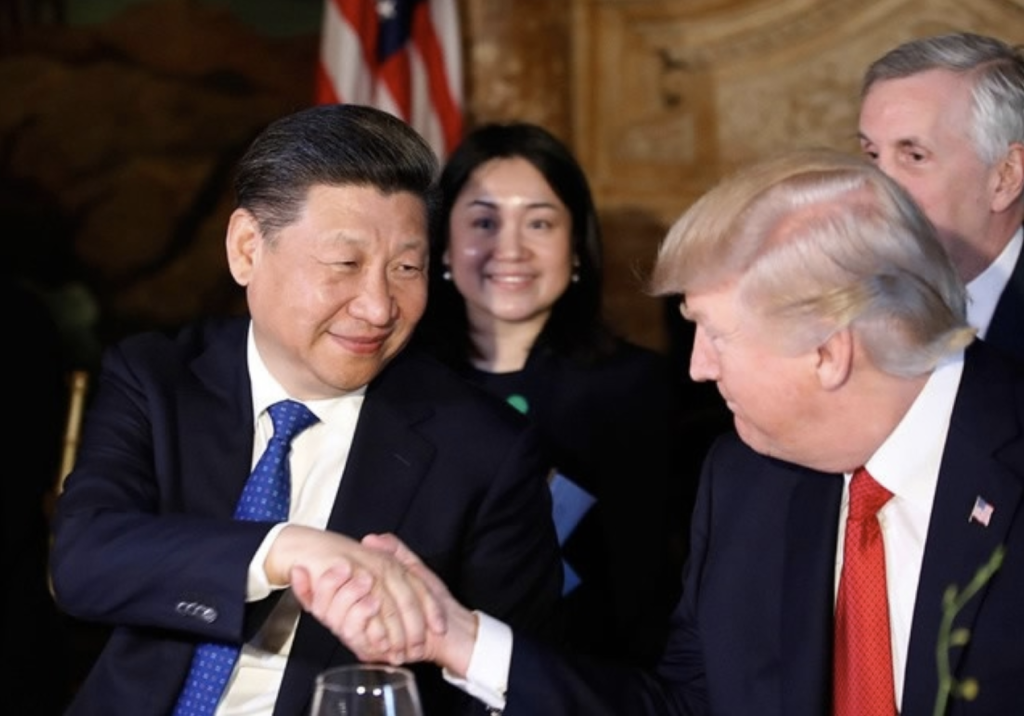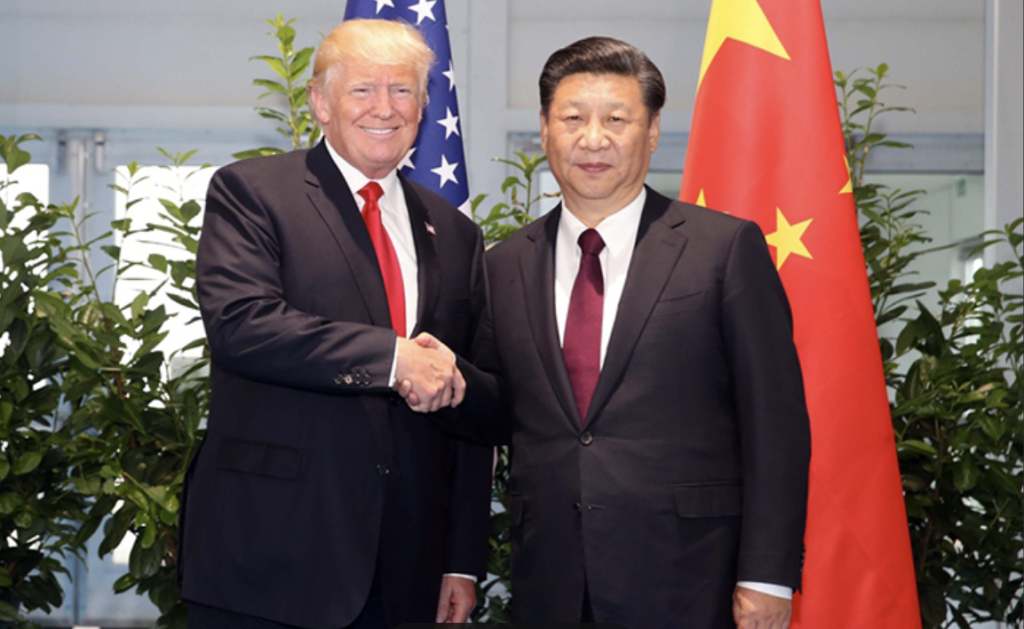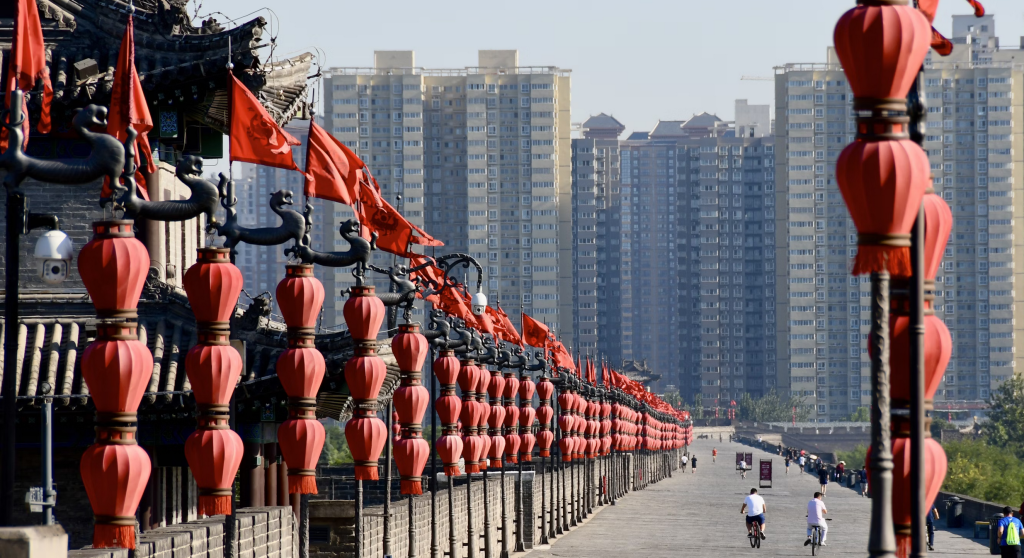Interview with Zhou Wenxing: Cross-Taiwan Strait Relations in the Next Few Years—Is War Inevitable?
An Interview with Eli Friedman on Transnational Solidarity and Left Internationalism
- Interviews
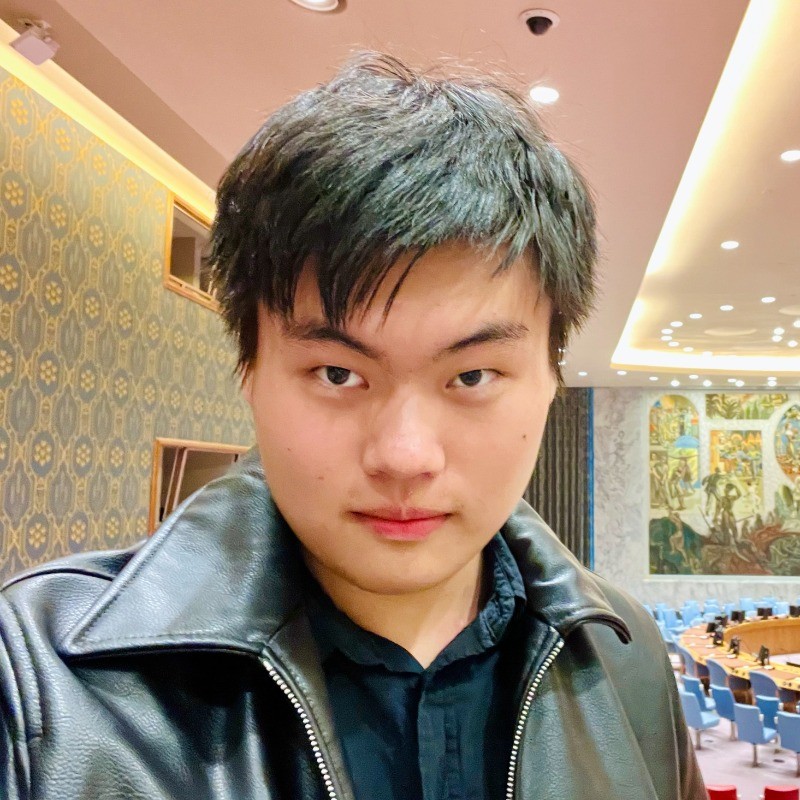 Diego Ge
Diego Ge- 08/27/2025
- 0
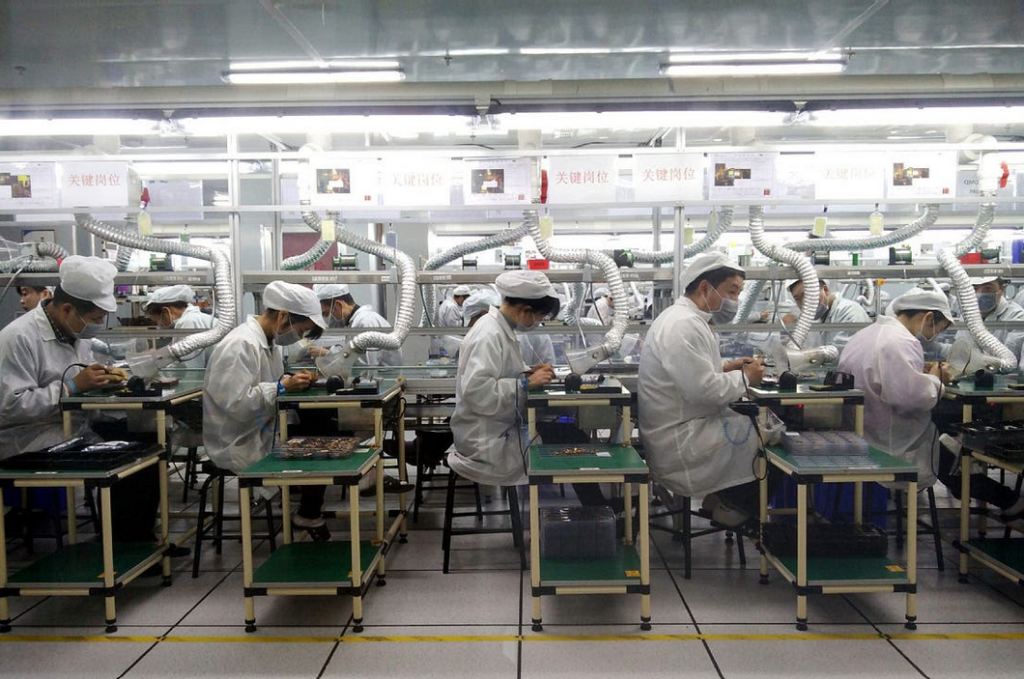
Workers at Foxconn Technology Group, Zhengzhou, Henan province. PRC. 2019. Source.
Eli Friedman is a Professor of Global Labor and Work at the School of Industrial and Labor Relations at Cornell University. He authored “China in Global Capitalism” (Haymarket 2024), “The Urbanization of People: The Politics of Development, Labor Markets, and Schooling in the Chinese City” (Columbia 2022) and “Insurgency Trap: Labor Politics in Postsocialist China” (Cornell 2014). His research is primarily concerned with how China’s rapid ascent in the global economy has impacted workers and labor politics, both domestically and internationally.
The Monitor spoke with Dr. Friedman on the question of transnational solidarity and Left internationalism in our current moment of global turn toward isolationism and authoritarianism.
Diego Ge: Thank you for talking with us today. I want to start from a point you make in your recent book, China in Global Capitalism, that the Left should commit to a position of ‘neither Washington nor Beijing’ at our moment today. Should the internationalist Left cooperate with state policies targeting their rival state: e.g. sanctions against China by the United States, or Chinese criticism of U.S. involvement in foreign wars?
Eli Friedman: That’s a great question; it is important and challenging. My baseline—and one that I think is shared by many activists—is that no state, whether the United States, China, or any other state, deserves uncritical support. States are large and complex entities, often acting across purposes internally. It’s not only possible but necessary to acknowledge that they can simultaneously do both good and bad things. The point is not to support a state’s actions just because it opposes a rival; rather, we need to operate from a set of ethical and political principles that allow us to critique states consistently and orient our forms of practical engagement.
So, we can think about this in relation to the question of the repression of Uyghurs in China, as well as the genocide in Gaza. They are different in important ways, but they both raise concerns central to progressive politics: Islamophobia, state violence, and genocide. In the case of Xinjiang, while access to information is limited, there is overwhelming evidence—available now for several years—of gross human rights violations, including internment, coerced labor, and forms of state violence that no progressive should endorse.
Where things get complicated, especially for those of us who are U.S. citizens, is in how we interact with the American state’s engagement with the oppression of the Uyghur population. Near the end of the first Trump administration, the State Department labeled what’s happening in Xinjiang as genocide. I agree with that assessment—not because I share political grounds with Mike Pompeo, but because the evidence points to a state-led effort to suppress Uyghur fertility, destroy cultural practices, separate children from families, and eliminate the Uyghur identity—policies that aim to end the Uyghur people as we know it.
But the next step is asking: what is the U.S. government doing with that assessment? And what are the ways in which this is also straightforwardly hypocritical? We can start by looking at how the American government is actually totally okay with similar kinds of actions when it is being carried out by states that it is geopolitically aligned with. For instance, we can look at India’s repression of Muslims in Kashmir—because India is a strategic ally. The genocide label becomes a geopolitical tool to contain China rather than a genuine defense of human rights.
So, we don’t need to reject a claim just because it comes from the American state—but we should recognize when that state fails to act on the principles it invokes. The U.S. government does not uphold a consistent standard that values human dignity and opposes state violence.
When we look at Gaza, the situation is even more stark. The violence there is overtly eliminationist. Tens of thousands, including women and children, have been killed. Israeli officials have openly declared intentions to deprive the population of food, water, and medicine—and they’ve followed through. Both the Trump and Biden administrations have enthusiastically supported this, completely eroding any moral high ground the U.S. might claim on issues like minority rights or anti-Muslim violence.
Interestingly, in this case, China has taken the “correct” position—at least rhetorically. The Chinese government has called for a ceasefire, endorsed a two-state solution, and publicly opposed Israel’s war on Gaza. We can question whether a two-state solution is still viable, but the point is: they’ve adopted the right stance in this instance. And just because I have deep critiques of the Chinese government doesn’t mean I should reflexively reject its position here. That would be intellectually unserious. Even broken clocks are right twice a day.
That said, China is not taking steps that would really put its own interests at risk to stop the war. Despite being Israel’s second-largest trade partner and heavily invested in Israeli infrastructure, ports, and tech, Beijing has not leveraged any of its influence. Its opposition remains purely rhetorical. Whether or not it could actually force a change is debatable, but it’s clearly prioritizing economic interests over taking meaningful action.
The bottom line is this: we must develop and apply our own political principles, independent of state positions. We should use these principles to critique any state—whether it’s the U.S., China, or anyone else—when they violate fundamental rights and values.
DG: It reminds me of the commentary I saw right after the Tucker Carlson interview with Ted Cruz, where many people said, “I never thought I’d agree with Tucker Carlson.” I think it is important to identify where people are coming from with their arguments. Would you say the Uyghur Forced Labor Prevention Act in the United States is another example?
EF: This was a specific measure the U.S. took in response to credible allegations of forced labor and broader human rights violations. I actually think it’s reasonable for a state to say, “We’re going to prevent our corporations from profiting from forced labor.” In that sense, the policy is unobjectionable—potentially even positive.
But the crucial follow-up question is: what happens to those supply chains? If U.S. companies are removing Xinjiang- or Uyghur-linked labor from their operations, where are they relocating production? And will the U.S. apply the same level of scrutiny if those supply chains move to places like India, which also has a documented history of forced labor? The form may differ, and it might not be as systematic as in Xinjiang, but it’s still present.
This suggests that the U.S. policy isn’t driven by a principled opposition to forced labor itself, but by geopolitical strategy. If forced labor simply shifts to a geopolitical ally and continues there, then the underlying system remains intact—and the policy does nothing to challenge that foundation.
DG: The Trump administration has cut funding form many American institutions that have traditionally done the work of ‘democracy promotion’ and humanitarian aid around the world, including the USAID, Radio Free Asia, Voice of America, the National Endowment for Democracy, etc. What do you make of these cuts?
EF: This is another case where we need to approach the state with complexity. The American state is capable of immense imperial destruction, but it has also supported life-affirming initiatives. Often, as with institutions like USAID, those elements are deeply interwoven.
The history of USAID is complicated and problematic—both for Americans and for people around the world—because the agency is often tied directly to U.S. imperialism. This can manifest in overt military contexts or in economic forms, such as development projects that claim to teach sustainable farming, only to mandate the use of American-made inputs, seeds, and fertilizers. These are coercive forms of economic dependence cloaked in aid.
This kind of entanglement needs scrutiny and critique. If someone aligned with a progressive agenda were in charge, USAID could be restructured to eliminate or reduce its more coercive and imperial elements.
At the same time, USAID has also built essential infrastructure for distributing food, medicine, and aid to impoverished regions—many of which are impoverished precisely due to U.S. actions, whether direct or indirect. Whatever the causes, the material reality in 2025 is that millions of people depend on these services. Eliminating them overnight would be catastrophic. We’re already seeing estimates of hundreds of thousands, possibly millions, at risk of death as a result of these destructive budget cuts. Anyone who considers themselves progressive—who supports the flourishing of human life—should be horrified by this. Even if you disagree with how USAID is structured or what it’s done historically, dismantling it in this way is not the path to meaningful reform.
The situation of Voice of America, Radio Free Asia, and similar outlets is related but somewhat different. These can be critiqued as propaganda tools; they don’t openly challenge U.S. policy. That’s true. But they also resemble platforms like NPR—still state-funded (well, not anymore), but with some degree of editorial autonomy. Or at least they did, before their funding was cut. A more productive reform might have been to push them further toward independence while maintaining public support, reducing their alignment with U.S. geopolitical interests.
Despite their flaws, these outlets have served as important sources of information for people worldwide—including in China. So again, there are valid critiques of what they’ve done and how they’ve been implicated in American foreign policy—but their elimination doesn’t serve anyone meaningfully.
Finally, it’s important to underscore that the dismantling of USAID and these media institutions marks a major break from post–World War II U.S. foreign policy. For decades, American empire operated under the banner of a liberal, rules-based international order. That approach often masked coercion with soft power. What we’re seeing now is the abandonment of even that pretense. The funding cuts don’t reflect a turn inward or to neutrality—they’ve been redirected straight into expanding U.S. warmaking capacity. What’s left is not a recalibrated foreign policy, but a stripped-down, militarized version of empire.
DG: Another example we could look at here is the case of Myanmar, where in the absence of USAID and hit with a severe earthquake, a lot of communities did not receive any assistance; Chinese aid was being funneled to the military junta, and it did not flow to those in opposition-controlled areas. Do you see China filling the gap in the short or long term? Is saying that closing USAID is a ‘gift to China’ the best approach to criticize the move?
EF: It really rubs me the wrong way when people describe the shutdown of USAID as a ‘gift to China’. Not because geopolitics aren’t important—they clearly are; they shape our lives in fundamental ways—but because the framing is so off. If your starting point in evaluating a policy is “who’s winning the geopolitical game of chess?” rather than “millions of people might die,” then something’s gone wrong.
Geopolitical analysis should ultimately be in service of a broader question: What conditions are most likely to support human flourishing? That’s a very different inquiry from simply asking whether China or the U.S. is ahead. The dismantling of USAID—its food distribution, medical relief, and disaster response capacity—is unequivocally bad for humanity. Now, if China steps in and fills that gap, providing aid where the U.S. retreats, that’s welcome. Frankly, I don’t care who delivers the assistance—as long as people get what they need.
But I’m not optimistic that China will step in effectively, or that it will develop a superior model for global development. There are structural and political reasons for that. Domestically, there’s little appetite—either among the general public or the Communist Party leadership—to spend tens or hundreds of billions on foreign aid. It’s simply not popular. China’s approach to aid has largely been tied to the Belt and Road Initiative, which prioritizes market-based investments intended to replicate the development model China followed over the past 40 years. That might work in certain places, but it’s unlikely to produce the same outcomes on a global scale. The Chinese path isn’t easily replicable for a range of political, economic, and historical reasons.
That said, one could imagine an entirely different world—an alternate universe—where the U.S. and China compete not over military dominance or resource extraction, but over who can do more good. Imagine a scenario where both powers invest in public health infrastructure in Sub-Saharan Africa, racing to provide access to vaccines, essential medicines, and food security. That kind of competition—one focused on winning hearts and minds through actual material support—would be a net positive for the world. But that’s not the world we live in. Today, the contest is over military bases, rare earth extraction, and energy dominance—even as China’s transition to renewables slightly shifts the terrain.
So, at the end of the day, we need to be clear about our point of departure. Whether China or the U.S. “wins” is irrelevant in itself. What matters is what they’re actually doing—and how that impacts the lives and dignity of people around the world.
DG: When we talk about U.S.-China competition, a common framing is that it’s a competition between a liberal democratic West and an authoritarian China. Do you think the concept and discourse of authoritarianism are helpful in academia or beyond when we talk about China in the West?
EF: Authoritarianism and democracy are rough categories. They are useful concepts, but ultimately approximations. They can help us understand the world, but I don’t think anyone still believes the dominant U.S. geopolitical narrative—that America represents liberal democracy and the free world against the authoritarianism of China. Some might have clung to that framing in 2024, but at this point, it’s a joke. The United States is no longer a functioning democracy, and that becomes more obvious by the day.
But your question points to something deeper. Even during the peak of globalization, when the U.S. still maintained formal democratic practices—elections, relatively independent courts, press protections, and so on—the idea of contrasting a “free” America with an “unfree” China was always misleading. Yes, China is authoritarian in that it is a one-party state and lacks basic civil liberties like freedom of speech and association. But that binary misses the profound economic entanglement between the two countries.
When you approach the issue through a lens of political economy rather than the framework of a typology of political regimes, it becomes clear that America is directly implicated in the very authoritarian practices in China that the American state claims to be against. Since the Carter and Reagan administration, and especially under Bill Clinton, the U.S. promoted a policy of “engagement” with China. This meant relocating capital from the U.S. and other Asian economies into China. As a labor scholar, I’ve studied this process for two decades. American corporations either directly entered China—like in the auto industry—or restructured supply chains through East Asian intermediaries to benefit from China’s repressive labor environment.
They took advantage of authoritarianism. Land could be seized from peasants. Workers had no rights to strike or organize independent unions—the right to strike was removed from China’s constitution in 1982, in anticipation of this model of economic development. Those who protested or challenged management could be jailed. These conditions directly benefited U.S. corporations, even as American officials publicly condemned the same authoritarian practices they relied on for profit.
So even when the “authoritarian vs. democracy” distinction had more descriptive value regarding state forms, it failed to explain the real relationships between societies in which forms of democracy and forms of authoritarianism are intermingled in important ways.
There’s another layer here, especially under the Biden administration, which has revived Cold War-style rhetoric. The U.S. is once again casting itself as the leader of a global alliance of democracies confronting authoritarian regimes like China. Biden held a Summit for Democracy in Washington, D.C., inviting many authoritarian leaders—India’s Modi, the Saudi monarchy, and others.
This isn’t surprising to anyone familiar with U.S. foreign policy in the 20th century, in which the United States has long undermined democracy: overthrowing elected governments in Iran, Chile, and elsewhere; isolating revolutionary regimes like those in Cuba or China; and aligning with dictators when convenient. China does the same. It maintains friendly relations with democracies like South Korea (the South Koreans are undermining their own democracy without Chinese help) while also working with Myanmar’s military junta. These aren’t strictly ideologically driven alliances—both powers are pragmatic.
So, back to the original question: do the concepts of authoritarianism and democracy still matter? I think they actually are important, and we should demand democracy, with the understanding that democracy is a dynamic process instead of a trait inherent to a particular state, ethnicity or race. Democracy isn’t inherent to a nation or an ethnicity, despite what some in the West or proponents of “Asian values” might suggest. The idea that certain peoples “can’t do” democracy is both racist and historically inaccurate.
Holding onto a commitment to democracy means challenging authoritarianism wherever it appears: in governments, workplaces, unions, or community institutions—whether in a self-declared democracy or not. That should be our baseline.
If that’s our guiding principle, we can develop strategies for democratization wherever we are. In China, maybe a multi-party system isn’t immediately feasible, but there are still openings to push for more democratic practices locally. And in the U.S., I don’t think anybody needs to be convinced that there are ways that we can make this polity more democratic than it is right now. There’s no shortage of opportunities to build something better from the ground up.
DG: There is some discourse in China about the relationship between the Chinese working class and the American working class, as well as working classes of other ‘developed countries.’ One argument in this discourse is that American workers structurally benefit from the oppression and labor exploitation of Chinese workers due to the wage disparity between the two countries, and so we cannot really speak of international solidarity between them, as there are structurally different class positions. The MAGA movement makes a similar point—that Chinese workers have taken American jobs. The question I have from both these narratives is: is it valid to say that there is a distinction in class positions between the U.S. and Chinese working class, and is it valid to derive the conclusions that I’ve mentioned?
EF: The first thing to say is that if you’re using methodological nationalism—taking the nation-state as the key unit of analysis—it collapses quickly. It’s impossible to simply say, “American workers are benefiting, Chinese workers are not.” You have to dig deeper into the internal class structures of each society. You really need to specify which workers and what kind of benefit you’re talking about.
Take, for example, a symbolically resonant case: a unionized U.S. auto worker with good benefits whose factory closed and moved to China. That worker clearly didn’t benefit from the U.S.–China economic relationship—they lost their job. But if we zoom in further and look at that same worker today, they might be in a lower-paying service job, still consuming goods that are artificially cheap due to the exploitation of Chinese labor. That was a cornerstone of U.S.–China engagement in the 21st century: American wages stagnated or declined, but the cost of goods dropped, largely because of China’s incorporation into global capitalism.
So yes, they can buy cheap products at Walmart, but those prices are made possible by the exploitation of Chinese workers. Meanwhile, China has developed significantly. It’s approaching developed-country status by some measures, but in terms of wealth per capita, global financial position, and so on, it’s not comparable to the U.S.
At the same time, Chinese workers no longer occupy the very bottom of global capitalism. Consider a worker at an electric vehicle company—some of those jobs, especially white-collar ones, are relatively well paid, even if they’re still exploitative in key ways. But what underwrites the profitability of a company like BYD? Part of it is the brutal exploitation of workers in the DRC who extract the minerals for EV batteries. So, to some extent, Chinese workers are now complicit in the exploitation of others in the Global South.
Then there’s the internal class structure of each country. In the U.S., the general story—though a bit simplified—is that blue-collar workers without manufacturing jobs have suffered. The new jobs they’ve taken pay less. But for highly educated workers, particularly in large cities, it’s been a boon. Wages have risen.
Take someone like myself—a university professor specializing in China. My job exists because of China’s integration into global capitalism. Or consider tech workers in Silicon Valley. Even though companies like Meta and Google don’t operate in China, the profitability of their industries relies on cheap electronics—phones, laptops, wearables—largely made in China. So, these white-collar workers absolutely benefit from the U.S.–China relationship.
This is probably more background than you need, but the key point is that the global working class is stratified, and workers are in competition with each other across borders. Now, the implication of your question is essentially: is MAGA right? Are we in a zero-sum game where either American or Chinese workers win? That doesn’t reflect the world we’ve lived in.
What do we do with that? One response is resignation—nothing can be done. After all, achieving international solidarity is practically impossible. But if you look at globalization’s history, workers have repeatedly emerged as a class in one place, only to have the floor cut out from under them by capital relocation. They’re pitted against one another, and over the past 40 years, this process has been destructive for workers everywhere—even if some have seen short-term benefits. China’s working class, in absolute material terms, has improved. But inequality has also grown dramatically. So, you could say some of that improvement came at the expense of workers in wealthier countries—but did they really benefit? And now, the floor is being cut out from under Chinese workers too.
Since 2008, labor struggles in China have shifted. Fewer are about wage demands. More are about factory closures, pension theft, unpaid wages—companies relocating to Vietnam, Cambodia, or Bangladesh. It’s the same cycle we saw in Hong Kong, Taiwan, South Korea, and the U.S. as capital scoured the globe. Chinese workers aren’t immune. The political goal should be to build an economy that doesn’t pit workers against each other. Some use the metaphor of replacing the “race to the bottom” with a “race to the top”—raising the floor for all workers. The politics of doing that are extremely difficult. Even at globalization’s peak, when international engagement was higher, it felt almost impossible. Now, in a hyper-nationalist era, it seems even more utopian—but we have to hold onto that as a political ideal.
DG: What do you think were the most powerful aspects of the 2022 social movements across China, and what do you think this movement reveals about Chinese society and the state as it was in 2022?
EF: There’s a natural tendency to say, “This was an exceptional moment in world and Chinese history.” A devastating global pandemic, killing millions—mostly not in China as of 2022—prompted the Chinese state, seeing the failures of nearly every other government outside East Asia, to take extreme policy measures. Lockdowns confined people to homes or workplaces, framed as necessary collective sacrifice. In many ways, this was indeed exceptional. But it also revealed two deeper state logics that long predated the pandemic and persist today.
The first is the state’s power over individual movement—its administrative capacity to control bodies in space. This isn’t new and isn’t unique to capitalism, but it has been intensified in the current capitalist form of the Chinese state. Digital surveillance and high administrative precision have enabled fine-grained control of population mobility. This goes back to systems like the hukou (household registration) from the 1950s, which gave the state the capacity to fix populations in place and channel resources accordingly.
That logic shaped tragedies like the Great Famine, where deaths occurred overwhelmingly in rural areas while urban populations were shielded. Fast forward to 2022: this kind of control, rarely experienced by younger generations who grew up in relative prosperity, returned abruptly. For middle-class, white-collar, or younger people born in the 1990s or late 1980s, the experience of being confined to their homes was a psychological shock and a political awakening—proof that the state could assert total control over daily life.
The second logic—more directly capitalist—was the state’s demand that productivity continue, despite immobility. Lockdowns didn’t mean work stopped. For white-collar workers, remote work continued. For blue-collar workers, especially in factories, the “closed-loop system” was imposed: living, sleeping, and working all in the same facility without leaving. The goal was to prevent viral spread while maintaining the circulation of capital and commodities.
But the system broke down. Psychologically, it was deeply distressing. Administratively, the state had the capacity to lock people in—but not to guarantee them food, medicine, or basic subsistence. One key issue was hukou: if you weren’t registered locally, you often weren’t on the list to receive aid. Informal residents and migrant workers were especially vulnerable. Even middle-class residents in cities like Shanghai worried about food shortages.
In spring 2022, factory disruptions began—Quanta in Shanghai (producing for Apple and Tesla) was a major flashpoint. Then came the explosive events of fall 2022 at Foxconn in Zhengzhou. Trying to confine up to 200,000 workers in one site while keeping iPhones rolling was untenable. Sick workers were isolated, others received inadequate food and medical care; yet they were told to keep working—for a company enriching what China considers its primary global rival. The contradictions became too much. Workers fled. The system collapsed.
Then came the White Paper movement: students and middle-class professionals in major cities protested for an end to lockdowns. It may seem these protests quickly disappeared, but they signaled something deeper. A still-unpublished essay by a colleague call these “parallel movements”: worker protests and student/white-collar protests occurred at the same time but didn’t interact. Their symbols and tactics differed. Students held up blank sheets of paper, chanted explicitly anti-state or anti–Xi Jinping slogans. Workers, by contrast, resisted quarantine enforcers and police, but without overt political language.
The deeper point is this: the participation of university students and white-collar workers revealed a structural transformation. They are no longer the privileged class they once were. A decade ago, a university degree all but guaranteed a stable future. Now, youth unemployment hovers around 15% (possibly undercounted). Even those who secure white-collar jobs face long hours, stagnant wages, and rising costs of living. Many can’t afford a house, car, or to raise a family.
The protests reflected not just temporary anger, but a broader sense of precarity—material, political, and psychological. Young people now realize the state can do whatever it wants: lock them in dorms, apartments, or factories. The future they face lacks the upward trajectory their parents expected. There’s no assurance of a materially better life, and certainly no expectation of greater political or cultural freedom, especially under Xi Jinping’s increasingly authoritarian rule. That dual insecurity—economic and existential—is still very much with us and may have only intensified in 2025.
DG: In that sense, would you say it is different from what we saw in 1989, even though there are still parallels of worker and student movements?
EF: The differences with 1989 are implicit, but also very clear. In 1989, there was an actual alliance between workers and students. They protested together in Tiananmen Square and elsewhere. That alliance was always somewhat tenuous—students often used workers instrumentally—and workers suffered disproportionately in the crackdown. The weakness of that alliance reflected broader limitations of the movement.
What followed illustrates some of the state’s core governing logics. The workers involved—primarily from state-owned enterprises, not migrant workers—were quickly marginalized. Their workplaces were increasingly privatized, labor was outsourced and made more flexible, and even when firms remained nominally state-owned, they came to operate like private companies. Conditions deteriorated for that class.
Students, on the other hand, fared much better. An implicit bargain emerged. They didn’t get democracy—whatever that might have meant to them at the time—but they did gain access to upward mobility. If you studied hard, did well on the gaokao, and got into university, your life was likely to improve. You could secure a well-paying job, gain social status, and make your family proud. You could buy an apartment in a major city like Beijing, and that apartment would quickly appreciate in value. Your children would have opportunities you never had—study abroad, extracurriculars, art classes. You could afford a car. Life, in short, was getting better.
That’s no longer the experience of college graduates. One reason is that there are simply far more of them than in the 1990s. Expanding higher education was a good thing, but it also made the job market far more competitive. Salaries aren’t what graduates expected, and many remain unemployed.
Unemployment brings not just economic hardship but social stigma. Families invest heavily—financially and emotionally—in getting their children into university. When a graduate can’t find a job, it feels like failure. That’s deeply frustrating, and it marks a sharp departure from the experience of the 1989 generation. The comparison is telling.
DG: The question that derives from that is where does that leave us now? When we have a society that says, “we are the last generation,” how do we operate a social movement that does not have a sense of futurity? In both China and the United States, we are witnessing a moment of decline that seems to suggest an end to the era of unlimited growth, prosperity, and liberalization. What do you think is the most important task for an internationalism from below—in other words, what is to be done?
EF: We can talk about this at a high level of generality and then move into specifics—both of which are challenging. But let’s start with the big picture.
At a certain level of abstraction, the challenges facing young people and workers in China today are not unique. High unemployment, severe housing insecurity, and a pervasive sense of atomization and anxiety—sometimes even nihilism—are widespread. This broader political, economic, and cultural condition looks very similar to what we see across East Asia—Taiwan, South Korea, Japan, Singapore—and also in Western Europe.
I spent the past year in Spain, which currently has the best-performing economy in Western Europe. Yet young people there often feel it’s impossible to imagine buying a home in Madrid or Barcelona, even with a university degree. The United States isn’t all that different. While cultural expressions may vary and the political crisis in the U.S. is especially intense, these structural conditions are shared across regions.
That’s the first point: Chinese people aren’t alone in this. These aren’t individual or national problems—they reflect a deeper systemic crisis in global capitalism. That doesn’t mean we can magically unite across borders to solve them, but it does suggest the need for coordinated responses. There are both economic and political dimensions to this. Economically, more people need to benefit from the system—inequality has to decrease. This is true everywhere. Take Zohran Mamdani in New York, whose campaign slogan was “the rent is too high.” He proposed coercive state action to cap rent, and it resonated. He won the Democratic primary and is likely to win the general election. That message—housing justice through state intervention—would work in Singapore, Taipei, Madrid, London, even Beijing if elections were held.
Politically, we need a global movement for democracy—not with the old notion that liberal democracies will teach the world how to govern, but a recognition that no society today is sufficiently democratic. We need democratization of politics alongside democratization of the economy. That could have global resonance, given the similar conditions people face.
But that raises the harder question: what do we do with these abstract principles? This is where national context matters. The opportunities and constraints are different in the U.S., China, Singapore, and elsewhere. In New York, for example, people got involved in electoral politics. Some on the left avoid that, but many others saw it as a viable path—and it worked. That path isn’t open to young people in Shanghai. So, you have to look for different kinds of movements and openings.
As a labor scholar, I focus on the labor movement. In the U.S., we’ve seen signs of revitalization—organizing efforts at Starbucks and Amazon, and a major surge among grad student workers over the past five years. These are examples of democratizing the workplace and the university. Once a grad student union exists, administrations face political limits—even if they want to pursue a Trump-style agenda, they must negotiate with a union. That’s real power.
In China, this is harder to assess. I haven’t been there in years, so I lack direct insight. You can’t join a union or participate in electoral politics. But what gives me cautious optimism—ironically—is the widespread pessimism I hear. People are disillusioned. And 2022 marked a real turning point. Before then, I’d meet Chinese people—either in China or students abroad—and they often expressed optimism: China was growing, becoming wealthier. I understood that, but also worried about deep structural problems like inequality. After 2022, many began acknowledging those concerns. That year was an awakening: people recognized the presence of fundamental problems, even if they didn’t know how to address them.
I talk about this a lot, but one striking moment was the white paper protests at Cornell. A couple hundred people came out, but no one really knew how to organize a political rally. It was chaotic. People spoke off the cuff. Everyone opposed the lockdowns, but the politics were scattered. Some supported Xi Jinping, others opposed him. Some praised American democracy, others denounced U.S. imperialism.
The dissatisfaction was real, but the political orientation was incoherent—because there are no established political organizations to channel it. Still, there’s a clear social basis for dissent. What happened in 2022 wasn’t just symbolic protests in Shanghai and Beijing—it was dozens of campuses, likely tens or hundreds of thousands of people across the country. That tells us something important. Even under extreme repression, when there’s a small opening—a crack in the system—people find ways to come together and express themselves. In 2022, people knew the risks and still went into the streets. I can’t predict when the next crack will appear, but history suggests it will. And when it does, I’m confident people will reemerge and develop more coherent political critiques.
DG: Thank you for your time and for speaking with us today.
The views expressed in this article represent those of the author(s) and not those of The Carter Center.

